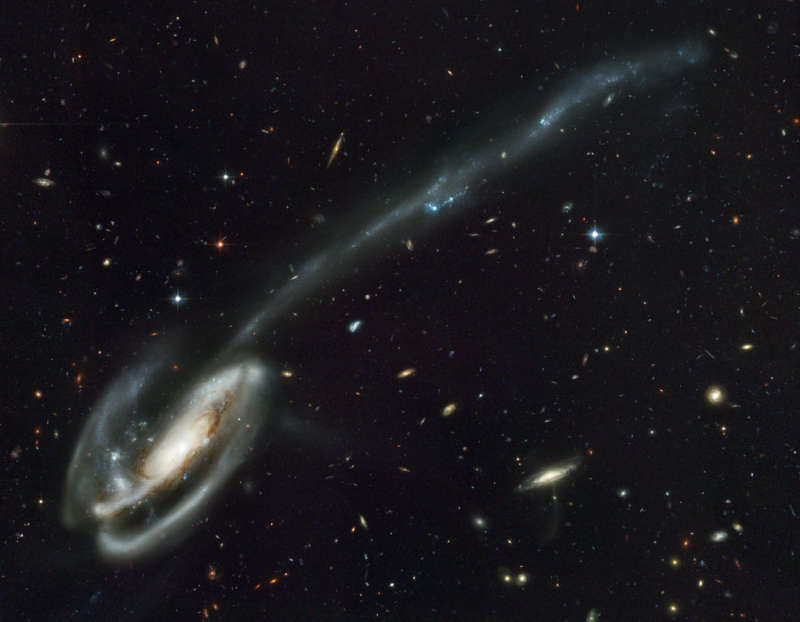
|
Credit & Copyright: H. Ford (JHU),
M. Clampin (STScI),
G. Hartig (STScI),
G. Illingworth (UCO/Lick),
ACS
Science Team,
ESA,
NASA
Explanation:
Why does this galaxy have such a long tail?
In this stunning vista
recorded with the Hubble Space Telescope's
Advanced Camera for Surveys,
distant galaxies form a dramatic backdrop
for disrupted spiral
galaxy
Arp 188, the Tadpole Galaxy.
The cosmic tadpole
is a mere 420 million light-years distant toward the
northern constellation Draco.
Its eye-catching tail is about 280 thousand light-years long and features massive,
bright blue star clusters.
One story goes
that a more compact intruder galaxy crossed in front
of Arp 188 - from left to right in this view - and was
slung around behind the
Tadpole by their gravitational attraction.
During the
close encounter, tidal forces drew out the
spiral
galaxy's stars, gas, and dust forming the spectacular tail.
The intruder galaxy itself, estimated to
lie about 300 thousand light-years behind the Tadpole,
can be seen through foreground spiral arms at the lower left.
Following
its terrestrial namesake,
the Tadpole Galaxy will likely lose
its tail
as it grows older, the tail's star clusters
forming smaller satellites of the large spiral galaxy.
|
January February March April May June July August September October November December |
| ||||||||||||||||||||||||||||||||||||||||||||||||
NASA Web Site Statements, Warnings, and Disclaimers
NASA Official: Jay Norris. Specific rights apply.
A service of: LHEA at NASA / GSFC
& Michigan Tech. U.
Based on Astronomy Picture
Of the Day
Publications with keywords: spiral galaxy - Arp 188 - interacting galaxies
Publications with words: spiral galaxy - Arp 188 - interacting galaxies
See also:
